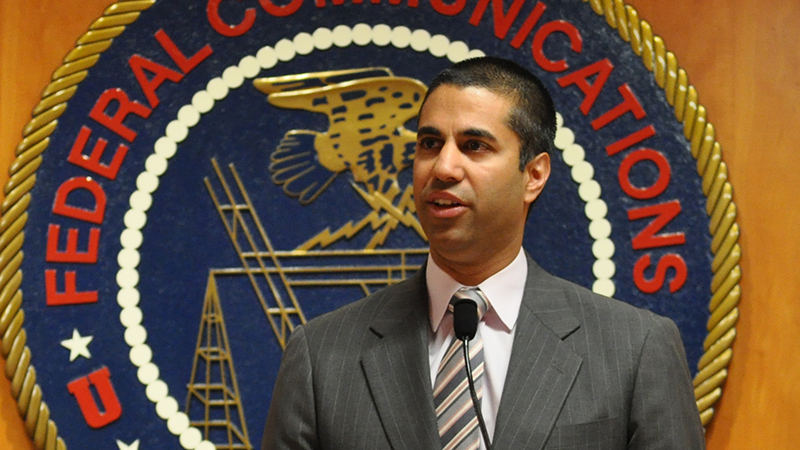
The chairman of the Federal Communications Commission is not yet sure what the impact of the Federal hiring freeze will be on his agency.
Chairman Ajit Pai was asked in a Senate hearing Wednesday if the Federal hiring freeze would affect the ability of the FCC to conduct investigations, such as whether mergers of media conglomerates comply with anti-monopoly regulations. Pai said he hadn’t had the chance to look into it.
“We’ve been so busy,” Pai said, “that we haven’t had a chance to talk to our human resources officials.”
The Office of Personnel Management, however, issued guidance more than a month ago directing agency heads to consult with their Chief Human Capital Officer (CHCO) or another equivalent official to determine what positions to exempt from the hiring freeze. Agencies must request exemptions through OPM and the Office of Management and Budget.
The commissioners’ numbers have been diminished since the beginning of the Trump administration because of the loss of former Chairman Tom Wheeler and Commissioner Jessica Rosenworcel. President Donald Trump, who nominated Pai as chairman at the start of his administration, also extended Pai’s term Tuesday to include another five years on the commission. Many senators on both sides of the aisle expressed the need to bring the commissioners’ numbers back up to five.
Since the FCC is running with only three commissioners, two Republicans and one Democrat, Sen. John Thune, R.-S.D., asked Democratic Commissioner Mignon Clyburn about rumors that she was considering using her power to block votes by resigning or refusing to show up because the FCC needs three out of five commissioners present to make decisions.
“What you read has never been suggested or hinted about me,” Clyburn said, adding that she doesn’t plan to prevent any decisions by using these tactics.
The commissioners began this hearing after a flip in party majority that caused many changes to FCC policy and process. Pai became the first chairman to release copies of the full text of documents circulated to commissioners for a vote at the FCC’s meeting on Feb. 23, which advocates have said will make the agency more transparent. However, Pai also rescinded FCC-led reports about free data policies and E-rate in order to chip away at net neutrality.
Sen. Gary Peters, D-Mich., asked Pai if he would commit to making public data that the FCC collects through its research.
“We would be happy to make public whatever we can,” Pai said.
Pai included that the agency wouldn’t be able to release information about trade secrets or ongoing law enforcement investigations.
“We need to have good data or we can’t make good decisions,” Peters said.
Senators also asked about the FCC’s role in the cybersecurity of Internet service providers and other media companies. Sen. Ed Markey, D-Mass., said that the FCC has a role in ensuring that broadband providers notify their customers in the event of a data breach. Commissioner Michael O’Rielly said that the FCC’s statutory role is limited in terms of data security issues, which makes it difficult to mandate cybersecurity policies for Internet service providers.
O’Rielly said that he wants to create a bureau of economics within the FCC that would investigate the cost-benefit analysis of each policy that the agency were to vote on.
“I believe in cost-benefit analysis,” O’Rielly said. “Although it can be difficult, it should be done.”
Pai and O’Rielly have argued that net neutrality rules hinder the economy because it creates obstacles to innovation for broadband providers. However, Markey referenced a letter from 107 technology companies that urged the FCC to maintain economic growth by keeping the net neutrality regulations in place.
“I’m going to fight very hard to protect those privacy rules that are on the books and I’m going to fight very hard to protect net neutrality,” Markey said.
